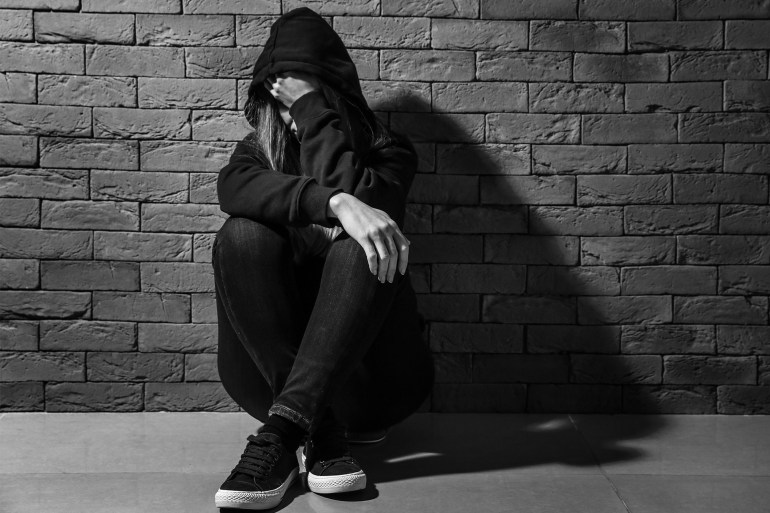The basic assumption of human behavior is that people seek pleasure and avoid pain.
A 2016 poll of Americans asked whether they would rather “achieve great things or be happy,” with 81% saying they would rather be happy, while only 13% chose to achieve great things.
Although happiness is a goal and an end that a person pursues, some are content with indulging in misery, they may even take pride in it, and even when they are given steps to improve their lives, they seem to prefer to continue to complain.
Is there some kind of comforting habit of feeling unsatisfied?
Why do some people go back to misery right after a short leisure trip with joy?
Causes of addiction unhappiness
Simply put, some people love negative emotions. A study by Eduardo Andrade and Joel Cohn, which assessed why people enjoy horror movies, found that some viewers are happy to feel unhappy.
Researchers have found that people experience both negative and positive emotions, meaning that they not only enjoy the relief they feel when the threat is removed, but they also enjoy fear.
They argued that this same theory might help explain why humans are drawn to extreme sports and other dangerous activities that provoke fear or disgust.
In his article for Psychologytoday, David Sack, who is board certified in addiction psychiatry, offers a number of possible explanations for the "unhappiness addiction."
He says that feelings of deep-seated insecurity or lack of self-esteem may cause some people to believe they do not deserve happiness, and an over-disciplined parenting style and unrealistic expectations can equate unhappiness with love and success.
The ongoing struggle in life with trauma or other negative experiences may fuel an unconscious desire to continually return to the current state of unhappiness, and some people who are comfortable with suffering may experience an underlying mental health disorder.
Others pride themselves on being realistic, believing that being pragmatic or realistic also means focusing on negativity.
Some people also resort to a feeling of permanent misery because of decisions or experiences in the past, so they feel guilt or regret that they cannot overcome, and choose to punish themselves permanently.
Moreover, some people fear joy because positive emotions may be a precursor to upcoming disappointment, and happiness is afraid of those who have never felt anything but misery, because it gives them a fear of the unknown, and some people make the problems of the world their own These individuals do not allow themselves to feel happy.
The miserable tends to look for reasons to feel miserable even when life becomes very good (Free Beck)
The American psychiatrist William Glaser, in his 1985 control theory, says that it is logical for some people to choose misery, and he mentioned 4 reasons why people make such a choice:
Keep anger under control
Instead of expressing our anger outside of ourselves, perhaps by threatening and harming others, we turn it inward.
Sometimes we don't know how to deal with our anger in public, so we direct it to a private place.
Makes others help us
When we appear miserable or depressed, it can be like a cry for help, and it can be especially attractive to men who often dislike asking for help.
Justifies our unwillingness to do something useful and efficient
The more miserable or depressed we become, the more powerless we also become. When misery overcomes us, we are unable to do much.
Helps us take back control
When we feel neglected because of the way someone else treats us or because of difficult circumstances, choosing to be miserable or depressed can greatly increase our sense of control, as no one can challenge us when we are powerless.
Who is addicted to unhappiness?
According to Psychology Today, a person who is addicted to unhappiness can be identified, he tends to look for reasons to feel miserable even when life becomes very good, and this person prefers to play the role of the victim and blame others rather than taking personal responsibility for his choices, and finds it difficult to Setting and achieving goals, not enjoying his successes when they occur, feeling left out and powerless to change, and feeling dissatisfied even when life is going well.
When we appear miserable or depressed it can be like a cry for help (Shutterstock)
Is happiness a choice?
It is often said that happiness is a choice, but why are not all people happy?
According to David Sack, happiness is complex. Some people find happiness even in the most difficult situations, and others do not feel happy despite having everything.
Some people believe that happiness is fleeting and depends on their current circumstances, while others seem generally happy or generally unhappy no matter what happens in their lives.
Then there is the question: How should we define happiness?
Through external success, or internal satisfaction, or otherwise?
In many cases, Sack says, it may be true that happiness is a choice. We choose our thoughts and reactions that affect the way we feel. We can also improve our happiness quotient by taking steps to change the way we think, such as accepting what is there, or developing our coping mechanisms. around us.
Mental health
For those with mental health disorders such as depression or anxiety, happiness is always elusive, and they do not choose to be depressed or anxious.
Choosing to be happy, in these cases, is more complex than making the choice to think positively. One important option you can make in this situation is to get cognitive behavioral therapy.

